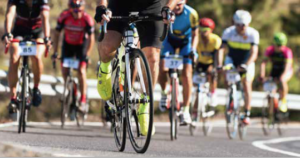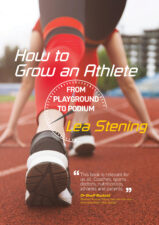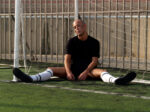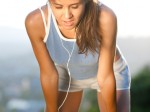 While it does take a lot of love and parental suppport to grow an athlete or active child, hormones and youth are on their side.
While it does take a lot of love and parental suppport to grow an athlete or active child, hormones and youth are on their side.
Maintaining our fitness as we age that’s the real challenge because both exercise and aging place a lot of stress on the body. The good news is that with the correct diet and exercise regimen the body can adapt, remodel itself and maintain a high level of fitness (at any age) if we are prepared to put in the effort, long-term.
How old is too old?
Peak performance and the ‘Masters’ level is reached in most sports by 35years of age. Then performance steadily declines in the 50-60 years accelerating downwards after that. However, this is not fait de accompli as there are cases of master’s athletes still competing at 101yrs!
More downtime
After 35yrs there can be more down time from exercise and training as our athlete has to work, care for themselves and maybe a family, cope with sleep deprivation and falling hormone levels.
Ill health and Injuries can also take their toll of our strength. Bed rest studies following surgery and hospitalization, have reported an average decrease of ∼0.5% of total muscle mass per day of immobilization with the effect accentuated for lower limbs compared to upper limbs. The effects of medication on nutrient absorption and the energy required to attend physio rehabilitation, all need to be factored in.
So if you have recently stopped training to have a baby, or have been injured while playing sport your energy and nutrient needs for recovery (from life events) may be every bit as important as the recovery regime that you follow after a bout of training or competition.
While it is perfectly normal to feel tired during recovery and feel mentally and physically drained, talking to your GP and Sports Dietitian could really help you to find the energy to get ‘back into gear’ and repair.
Late ‘adopters’
Of-course, not all of us are born athletes or “regular exercisers”. Many people don’t find the time for exercise until they retire, when they may have more funds and more awareness of their failing body if they don’t.
Some also find a “new tribe” of friends in later life, with sports gatherings leading to a busier social life, more fun, camaraderie and trips abroad (eg cycling, golf, multi-sports etc). Staying on top of their game (mentally and physically) may be more about the control of alcohol and gourmet food excesses than age itself.
Physiological changes as we age
Declining physical performance has been found to be due not only to reduced training volume and intensity of effort but also physiological changes in the body as we age. These changes can also be triggered by a lack of energy availability. 1
Changes in Body Composition
- Height starts declining from 30-40 yrs due to compression of the intervertebral disks in the spine, poor posture and osteoporosis.
-So keep alert to bone health 2 - Weight gain can occur around 25-45yrs due to declining activity, more energy intake and reduced ability to mobilise fat stores.
-Try to monitor your weight regularly and seek help before your body mass index exceeds the 25 -29.9 overweight category. - Weight loss by 65-70 years can accompany a decline in appetite in some people. If BMI drops below 18.5kg/m there is a greater risk of bone thinning, fatigue and immune insufficiency.
–This condition can be treated. - Muscle mass size and strength peaks at 20-30yrs, declines around 30-40 years then loss accelerates after 70-75 yrs. This condition of aging is known as sarcopenia.
This occurs due to a decline in total muscle fibres, loss of motor neurons (to activate muscle) and muscle fibre size (especially the Type 2 fast-twitch muscle fibres that are responsible for faster, stronger bursts of power).3
A drop in muscle mass also results in a reduction in glycogen (energy) storage something that can greatly reduce the performance of athletes in endurance events.
–Learn to stay strong as you age - Heart and Lung function also alters as we age. Heart rate max declining 0.7 beat/year from 18-50 years with a decline in cardiac output and stroke volume.
–Appropriate training can greatly help to reduce this decline.2 - Respiratory function declines due to a drop in Vo2 max around 10% per decade after 25 years regardless of fitness which usually just results in a drop in intensity (velocity) and volume of exercise that can be performed in each training session 3
–Regular exercise is still advised. - Thermoregulation and the ability to manage in hot and cold environments can be harder with age. This is due to lower cardiovascular fitness, high body fat and reduced sweat gland activity. This can lead to heat exhaustion especially in masters athletes involved in long-distance running or participating in outdoor sports e.g. golf, bowls, tennis during summer months.If the core temperature of the body exceeds 39°C gastric emptying can be suppressed and the ability to digest and absorb nutrients can be impaired
.-It is important to have a good hydration plan as needs will change depending on age, environmental factors and activity levels. This is likely to gain importance due to global warming, climate change and the increase in summer events e.g Summer Olympics and fun runs.
Changes in body building
Muscle protein synthesis (MPS)
i.e muscle building is about 30% lower than in 20 year olds due to a decline in growth hormone and insulin-like growth factor.
There can also be a reduction in resting and post-exercise MPS known as anabolic resistance where there is a reduced ability to use amino acids for MPS resulting in a loss of muscle mass.
–A sports dietitian can help determine your protein needs as these levels not only depend on your age but also on your weight and the type of exercise you are doing.
Bone mineral density
This declines when bone resorption (breakdown) exceeding synthesis (building) starting at 30-35 year in women and 45-50 in men. This is related to a lack of nutrients such as calcium, protein and energy as well as hormonal change and reduced activity.
Interestingly, water makes up 25% of bone mass and along with lean body mass is important for bone strength.
–Learn about bone health
Body adaptations
Exercise and aging put stress on the body.
When we exercise our muscles and bones are exposed to micro trauma and breakdown. From 24-72 hours after exercise our body goes through a remodelling phase which ultimately leads to greater strength.
For athletes involved in resistance and endurance exercises, this remodelling of muscle tissue is essential to remove protein damaged during exercise and stimulate the resynthesis of new functional proteins. This muscle protein turnover is at a rate of 1-2% per day
These body adaptations are dependent on the intake of energy and protein being provided in adequate amounts, delivered at the right times to suit the individuals age, level of activity, type of sport, health and nutrient needs.
So when you go for a run, drop by the gym, play a round of golf, head off for a walk more than 1.5 hrs you need to have a plan of what to eat and drink before- during and after this exercise for recovery. This will also help to slow the physical and mental decline with age and rebuild a stronger, fitter body.
Key things you can do to alleviate physical decline?
Exercise regularly
Training can help to reduce the ill effects of many of these changes (even in individuals 80-90 years old) which is something master’s athletes are well aware of. It’s really important to keep moving, to have fun and vary what you do.
MOH General recommendations >65yrs:
- Limit sedentary behaviour
- See health practitioner and Increase physical activity 5 days/week
- At least 30 minutes aerobic moderate or 15 minutes vigorous/day
- Aim for 3 sessions of flexibility and balance activity
- Plus 2 sessions of muscle strengthening activity per week
Masters Athletes > 35yrs: More sport specific + training and competition
Aerobic 3-5 days/wk 20-60min/sessions 55-95% max heart rate mod/vigorous intensity, light intensity for deconditioned adults or those with chronic diseases
Resistance 2-3 days/wk 2-4 sets of 8-20 reps for all muscle groups
Flexibility 2-3 days/wk 2-4 set part of usual routine repeat stretch 2-4x 60 sec/stretch
Balance 2-3 days/wk 20-30 mins per neuromotor or proprioceptive exercise session
Eat well
Movement can strengthen muscle and bone and help maintain a healthy body weight but the body building process also relies on a stock of good raw materials so:
- Enjoy a wide variety of nutritious foods
- Eat plenty of fruit and vegetables, breads and cereals for essential B and C group vitamins and dietary fibre for gut health
- Choose a diet low in saturated fat and minimal salt for a healthy heart
- Drink plenty of water and low-fat milk for bone health and hydration
- If you drink alcohol do so in moderation but not straight after sport as alcohol slows glycogen resynthesis, reduces bone density and prolongs healing time
- Learn to gear your energy intake according to your activity levels at baseline, training and competition. In this way you can ensure nutrient adequacy, good recovery and great results long-term.
- Recognise that your nutrient needs change with age and the level and type of sport you are undertaking. While a certain routine of eating, may have served you well as a younger athlete you may achieve better results today with a refreshed sports nutrition plan and repeat blood tests (see your GP)
- If you would like to check the adequacy of your current diet and develop a sports nutrition plan that will maximise your performance and protect your long-term health, then contact me today.
 Buy my new book How to Grow an athlete
Buy my new book How to Grow an athlete
For more information refer to other articles by Lea
Nutrition updates may assist master’s athletic performance
Time your energy for better performance
Are you energy deficient?
Building better bones
Alcohol and sport- is it a good match for you?
Retiring athletes need to rethink their nutrition
Vitamin D for growth and immunity
Don’t let disordered eating ruin your performance
References
- Louis J, Vercruyssen F, Dupuy O, Bernard T. Nutrition for master athletes: is there a need for specific recommendations? Journal of Aging Physical Act. 2019 Nov 17: 1-10
- Senthil Kumar PK. Aging in sport and exercise.TNPESU
- Desbrow B, Burd, N, Tarnopolsky M et al. Nutrition for special populations: Young, female and masters Athletes. Int. J. Sport Nut. & Exer. Met.2019 Vol 29 (2) 220-227
- Ganse B, Degens H Skin temperature in Masters Long-distance runners- results from a field study at the 2018 world masters athletics championships. Frontiers Sport Act Living 9 April 2020
- Kopiczko A, Adamczyk JG et al Bone mineral density in elite master’s athletes: the effect of body composition and long-term exercise. Eur Rev Aging Phys Act 2021 18:7
- Lefferts W, Davis M, Varcruystan F. Exercise as an aging memetic: A new perspective on the mechanisms behind exercise as a preventative medicine against age-related chronic disease. Froniers 2022






























































Leave a Reply